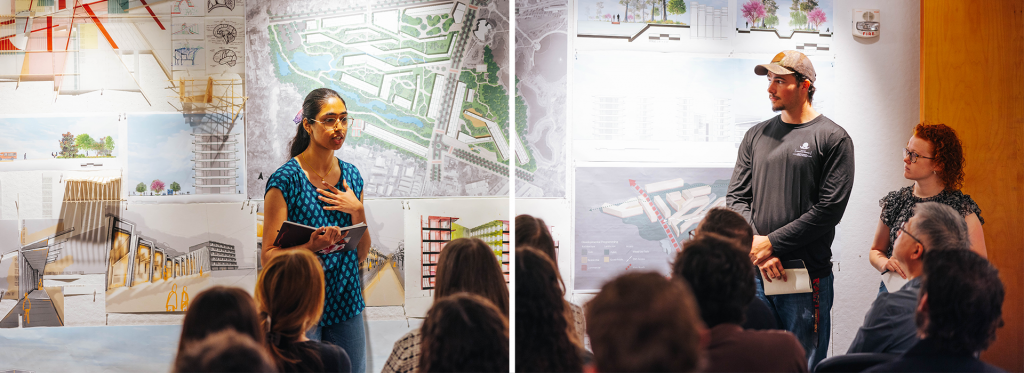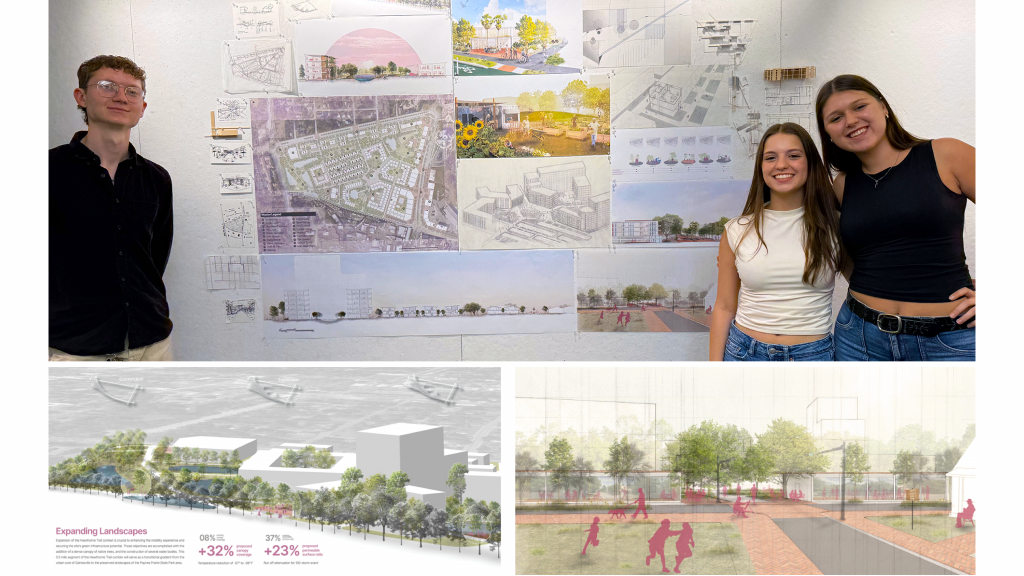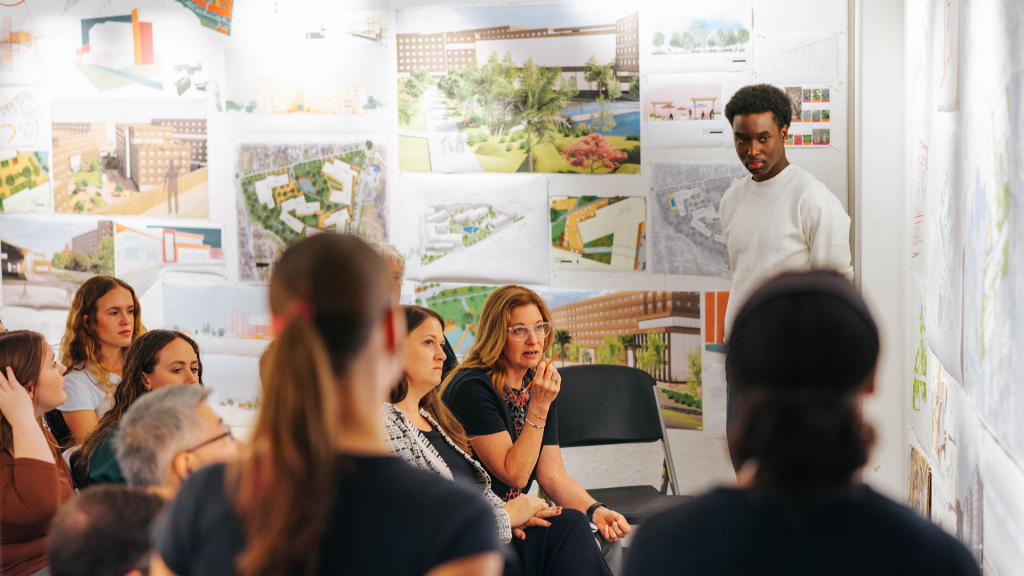UF Students Propose Neighborhood Redevelopment Near Depot Park
University of Florida architecture and landscape architecture students presented innovative neighborhood redevelopment proposals during their final review held at the end of the 2025 Spring semester. Through an interdisciplinary Urban Design Studio, undergraduate students focused on inclusive design strategies and housing models for special needs populations at two sites adjacent to Depot Park.
The joint studio brought together third-year students from both disciplines to envision high-density, mixed-use developments that integrate housing for adults with disabilities, workforce and market-rate housing, as well as commercial spaces, public amenities, and green infrastructure. Student teams were tasked with balancing urban intensity—comparable to New York’s Greenwich Village—with the requirement that at least half of each site remain dedicated to public outdoor space.
“As Gainesville residents struggle with housing shortages and gentrification pressures, it is increasingly clear that an integrated and diversified approach to residential design has not manifested enough in local urban design efforts,” explained Hayden Germanis, a landscape architecture student in the course. “Imagining residential design as an inclusive effort to integrate business, recreation, and living amongst shared sites gives us designers more creative freedom and cultivates healthy communities.”

Co-led by Kevin Thompson (Associate Professor, Landscape Architecture) David Rifkind (Professor, Architecture), the studio challenged students to explore context sensitive design, universal/barrier-free ADA design, and biophilic interventions. The studio also benefited from input by The Independence Project (TIP), a Gainesville-based non-profit organization that advocates for adults with disabilities. TIP’s mission is to support adults with intellectual or developmental disabilities to be able to live independent, socially connected lives through appropriately designed affordable housing.
Nine student teams participated, with six selecting the “west” site—currently home to a concrete batching facility—and three designing for the “east” site across SE 4th Avenue from Depot Park. Projects featured creative approaches to housing, public space, commercial opportunities, and ecological design.
“This was a rich opportunity for students to engage in cross-disciplinary thinking,” said Professor Thompson. “Their designs addressed real challenges in housing affordability, accessibility, and sustainable urbanism.”

Describing the interdisciplinary nature of the course Mr. Germanis mentioned, “I thought collaborating with architecture students on a studio project was a challenging, yet insightful experience that has expanded my understanding of design. This interdisciplinary approach to a large-scale project helped our team see urban design as a holistic process, shaping buildings and landscape together as one integrated urban form.”

The review panel included UF faculty, visiting professionals, and community partners, fostering dialogue around urban design, accessibility, and sustainability. The event underscored the value of interdisciplinary education and community-engaged design, with students demonstrating how a more inclusive, sustainable urbanism for the Depot Park area can be imagined through collaborative studio work.